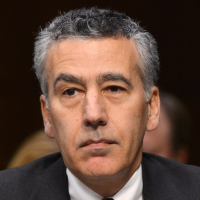Ambassador to the Philippines: Who Is Philip Goldberg?

The next ambassador to the Philippines will be Philip S. Goldberg, a senior diplomat and government official currently serving as assistant secretary of State for Intelligence and Research (INR) since February 16, 2010.
Born August 1, 1956, in Boston, Goldberg was one of three children, with two sisters, Donna and Lisa. After earning his B.A. at Boston University circa 1978, he worked for several years as a liaison officer between the City of New York and the United Nations and consular community.
After joining the Foreign Service, Goldberg served early career foreign postings as a political-economic officer at the embassy in Pretoria, South Africa, and as a consular and political officer at the embassy in Bogota, Colombia.
From 1994 to 1996 Goldberg was the State Department desk officer for Bosnia and a special assistant to Ambassador Richard Holbrooke. In the latter capacity, he was a member of the American negotiating team in the lead-up to the 1995 Dayton Peace Conference and chief of staff for the American Delegation at Dayton. Goldberg served as special assistant (1996-1998) and then executive assistant (1998-2000) to Deputy Secretary of State Strobe Talbott. In 2000, he was a senior member of the State Department team handling the transition from the Clinton administration to the Bush administration, and then served as acting deputy assistant secretary of state for Legislative Affairs from January to June 2001.
Goldberg served as deputy chief of mission at the embassy in Santiago, Chile, from 2001 to 2004, and as chief of mission in Pristina, Kosovo, from 2004 to 2006.
In 2006, Goldberg was named an ambassador for the first time, and sent to La Paz, Bolivia, for an intended three-year term that ended after two years with Goldberg’s expulsion as a persona non grata. A series of incidents in 2007 and 2008 indicating that U.S. embassy personnel were attempting to recruit Peace Corps volunteers and visiting American scholars as spies raised tensions. That same year, the mainly white and affluent populace of Bolivia’s eastern provinces, who had opposed the 2006 election of Evo Morales, Bolivia’s first indigenous president, forced a bitter recall vote. Even after Morales won, opposition leader Rubén Costas called Morales a “dictator” and hurled the racial slur “macaco” (monkey) at him. Goldberg, who speaks fluent Spanish, surely understood the offensiveness of the comment. When Goldberg met with Costas anyway, Morales accused the U.S. government—which has been a vocal critic of Morales since before his election—of trying to destabilize his regime and expelled Goldberg in September 2008.
From June 2009 until June 2010, he served as the Coordinator for Implementation of UN Security Council Resolution 1874 (Sanctions) on North Korea.
-Matt Bewig
To Learn More:
Statement Before the Senate Foreign Relations Committee (pdf)
- Top Stories
- Unusual News
- Where is the Money Going?
- Controversies
- U.S. and the World
- Appointments and Resignations
- Latest News
- Trump to Stop Deportations If…
- Trump Denounces World Series
- What If China Invaded the United States?
- Donald Trump Has a Mental Health Problem and It Has a Name
- Trump Goes on Renaming Frenzy






Comments